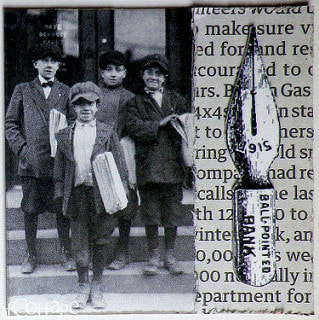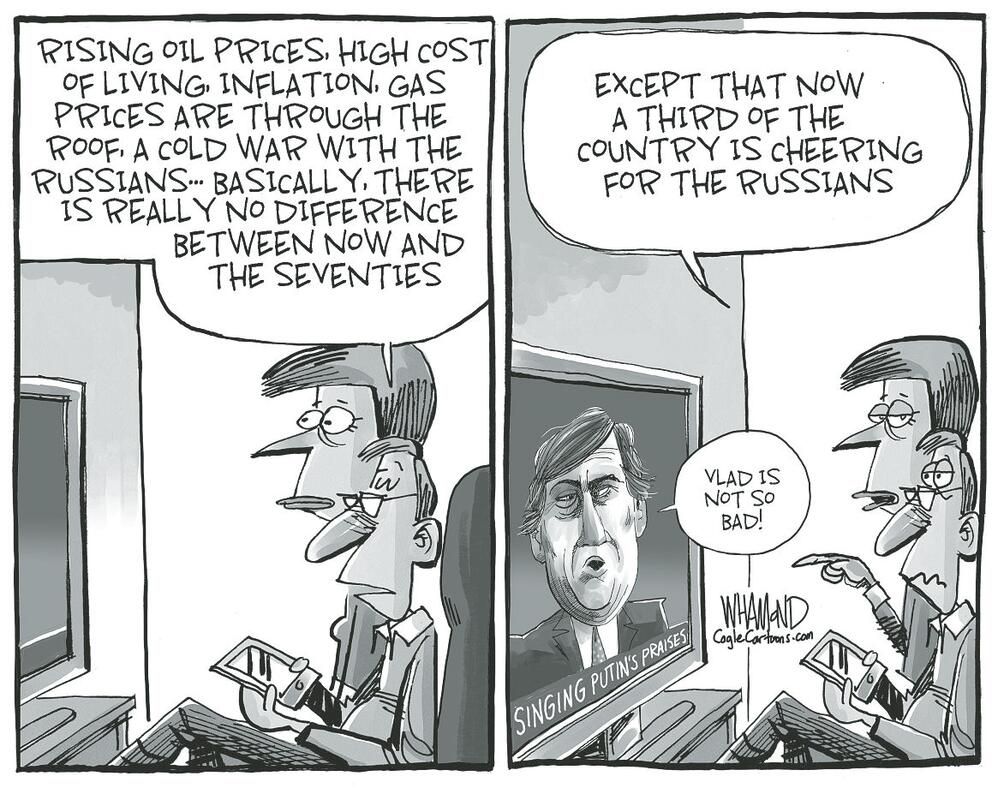After brutalizing his own citizens in Chechnya and violating international borders — and law — in Georgia, Crimea, and eastern Ukraine, Russian President Vladimir Putin was apparently counting on continued ineffectual international protest against his invasion of Ukraine and relatively little resistance from forces on the ground.
Putin majorly miscalculated militarily, diplomatically, economically and even culturally. Most significantly, he underestimated Ukrainians.
Led by intrepid President Volodymyr Zelenskyy, Ukrainian armed forces and everyday citizens have put up a ferocious fight against the Russian invasion. They have shown a patriotism more profound than the jingoistic version often found in other countries, including sometimes our own. Outmanned and outgunned but not out motivated, Ukrainians have shown an inspiring spirit just as reports of Russian dispirit emerges from the front lines and the home front, which once again sees an iron curtain isolating Russian citizens from the world.
Diplomatically, after a halting start, democracies have rallied in rare unity. The coordinated, consequential sanctions imposed by the U.S., European Union, the United Kingdom and Asian and Australian nations who share the universal values of democracy and sovereignty are real and deep. And finally, many are targeted at the kleptocratic oligarchs enabling, and enabled by, Putin. Unfortunately, everyday Russians will still mostly feel the brunt of a collapsing economy. But maybe that will inspire them to show courage commensurate to Ukrainians and take to the street to protest Putin's disastrous war against nonaggressive neighbors who were once fellow citizens.
The Western-led effort to condemn the Kremlin went international on Wednesday when the United Nations General Assembly voted 141-5 to condemn Russia's invasion of Ukraine. The "no" votes were the usual repressive suspects: the offender, Russia, and its supplicants Syria and Belarus, as well as global pariahs North Korea and Eritrea. There were 35 abstentions, including Moscow's allies in Beijing and, shamefully, India, the world's largest democracy that wouldn't stick up for the world's most beleaguered.
While quick to acknowledge that the nonbinding vote doesn't directly change anything, the lopsided result was "extraordinary," and "the result of intense diplomacy to build that support" from the U.S. and other key countries, Mary Curtin, diplomat-in-residence at the Humphrey School at the University of Minnesota, told an editorial writer. It's also reflective of world leaders witnessing "Ukraine's intent and determination to push back, which I think surprised Russia."
Moscow may also have been surprised by the breadth and depth of not just official government sanctions, but by corporations acting independently to isolate the aggressor. Major multinationals — including but not limited to Boeing, Volkswagen, Harley Davidson, Nike, Adidas and Apple — have admirably made unilateral decisions to suspend or curtail investments and/or operations in Russia, often at the cost of billions of dollars.
And while not nearly as militarily, geopolitically or economically as consequential, the cultural cutting-off of Russian teams and athletes from international competitions like the World Cup as well as other events in globally connected 21st-century cultural life are appropriate and may intensify the gut reaction of Russians (belying the lies from Russian state media) that Putin is taking their country off a cliff.
And yet despite the extraordinary pushback, Russian troops show no sign of pulling out of Ukraine. Rather, they're intensifying their invasion, indiscriminately shelling cities and reportedly taking at least one major one, Kherson, in southern Ukraine. Despite early setbacks, Russia's overwhelming military advantage will likely continue to conquer key cities, perhaps including Kyiv, the capital. The war "is going according to plan," Putin told French President Emmanuel Macron, according to a readout of their Thursday call. For the brutal Putin, that apparently includes what could be war crimes, which the world should not flinch from pursuing.
If Russia prevails in its initial invasion, it might lead to a grinding insurgency. The same nations, multinational corporations, international organizations, institutions and individuals who have shown such zeal in backing a sovereign Ukraine and resisting a revanchist Russia must continue to apply pressure.
A presidential pledge to do so was one of the rare bipartisan moments during the State of the Union address on Tuesday, as President Joe Biden said that he and Congress are together in "an unwavering resolve that freedom will always triumph over tyranny." The first post-address move is Biden's request for $10 billion in "additional humanitarian, security and economic assistance for Ukraine and the neighboring region." With now more than 1 million war refugees in just a week, Ukraine, and countries generously opening their borders, will need this and more. Congress should act quickly.
A previous president, John F. Kennedy, similarly spoke of a "long twilight struggle" to win the Cold War. JFK, in his inaugural address, also pledged that "we shall pay any price, bear any burden, meet any hardship, support any friend, oppose any foe to assure the survival and success of liberty." So far the stakes haven't been commensurately raised. But Americans should put rising gas prices and other effects in context, and most importantly continue paying with their most important asset: their attention, which is needed to continue the global resistance to Putin's crimes.
Star-Tribune
MICHAEL J KLINGENSMITH, Publisher and CEO
SCOTT GILLESPIE, Editor, Editorial Pages



 RSS Feed
RSS Feed